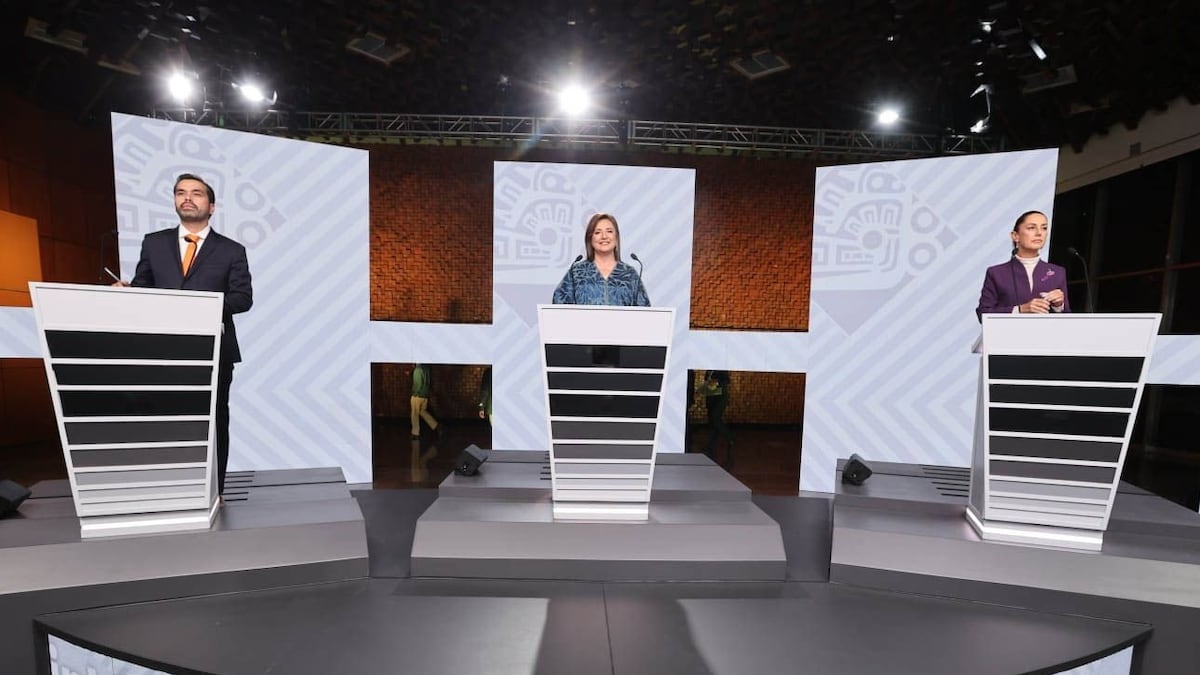Clash of Policies and Personalities: Mexico's Final Presidential Debate
In the heightened atmosphere of the Tlatelolco University Cultural Center, the third and final presidential debate before Mexico's June 2 elections unfolded with fervor. The candidates—Claudia Sheinbaum from the ruling Morena party, Xóchitl Gálvez from the PAN, PRI, and PRD alliance, and Jorge Álvarez Máynez from Movimiento Ciudadano—presented their visions while engaging in heated exchanges.
Sheinbaum, who has led in the polls, emphasized her proposals, such as building one million homes and creating new megapharmacies. Gálvez, on the other hand, focused on reinforcing social policies and committing to retain social programs if elected. She also promised to build five million homes and to establish a national health system for cancer treatment. Álvarez Máynez aimed to set Mexico among the top 10 economic powers in the world and proposed equipping police officers to enhance security.
The debate was not short on personal attacks. Gálvez frequently referred to Sheinbaum as 'the candidate of lies' and contrasted their childhoods to highlight her working-class background. She accused Sheinbaum of using faith for political opportunism and criticized her past administrative decisions. In defense, Sheinbaum dismissed these attacks and brought attention to Gálvez's association with conservative governments, notably critiquing the era of President Felipe Calderón.
Máynez brought a more critical stance against both contenders. He pointed to inconsistencies in Gálvez's campaign, mentioning her role in past administrations that he deemed flawed. He also critiqued both the PRI and PAN for their historical corruption while proposing a more transparent governance structure.
The debate's format included social policy, security, organized crime, migration, foreign policy, and democracy. While the candidates had ample time to discuss their platforms, the meeting's tone was often combative, overshadowing detailed policy explanations. Nonetheless, each candidate sought to appeal to the nearly 100 million registered voters, who stand as the ultimate decision-makers in the impending election.
- During the debate, Gálvez emphasized the need for social programs to remain intact and criticized Sheinbaum for her stance on religion. She questioned Sheinbaum’s belief system in a bid to resonate with faith-based voters. She also accused the Morena party of links with organized crime, which Sheinbaum robustly denied.
- Máynez, displaying a neutral stance, underscored the need for ideological consistency and addressed the real estate corruption accusations against PAN. He disapproved of the role of military in policing as promoted by the current administration, stressing civilian oversight instead.
- The debate lacked citizen participation, contrasting with earlier debates. This decision, as reported, stemmed from pressures by the presidential campaigns to avoid direct, unscripted confrontations. The candidates' final face-off aimed to solidify their standing and clarify their platforms, although it was marred by mutual attacks and political rhetoric.






